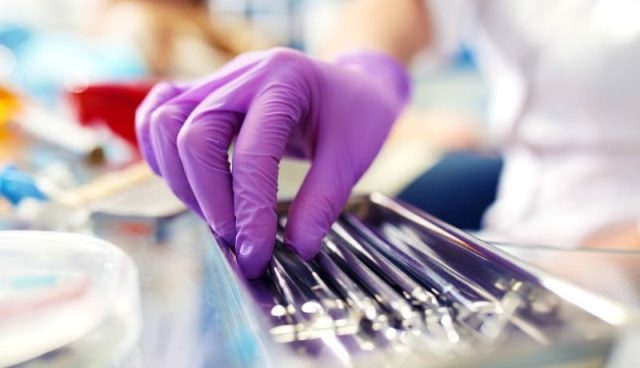Deep surgical site infection rate decreased postintervention in patients undergoing arthroplasty and spine surgery
By Elana Gotkine HealthDay Reporter
FRIDAY, April 12, 2024 (HealthDay News) — Use of presurgery intranasal povidone-iodine (PVP-I) is effective for reducing the rate of surgical site infection (SSI) after joint arthroplasty and spine surgery, according to a study published online March 27 in the American Journal of Infection Control.
Lisa Saidel-Odes, M.D., from Ben-Gurion University of the Negev in Beer-Sheva, Israel, and colleagues conducted a retrospective case-control study designed to reduce SSI risk after joint arthroplasty and spine surgery by reducing Staphylococcus aureus colonization burden with PVP-I application in conjunction with skin antisepsis. The analyses included 688 adults who underwent joint arthroplasty or spine surgery during February 2018 through October 2021 (postintervention cohort) compared to a similar retrospective historical patient cohort from 2016 to 2017 (660 controls).
The researchers found that post-intranasal PVP-I, the eradication rate of S. aureus nasal colonization was 39.6 percent. Patients who were positive versus negative for S. aureus on 24-hour postsurgery nasal culture had a higher SSI rate. For all surgical procedures, the deep SSI rate per 100 operations decreased postintervention versus the historical cohort.
“Our study clearly shows that we can prevent surgical site infections and keep patients safer through the use of a simple presurgical nasal application of povidone-iodine in combination with standard chlorhexidine gluconate bathing,” Saidel-Odes said in a statement. “An additional application of the povidone-iodine might be needed for patients with greater nasal colonization.”
Copyright © 2024 HealthDay. All rights reserved.



















